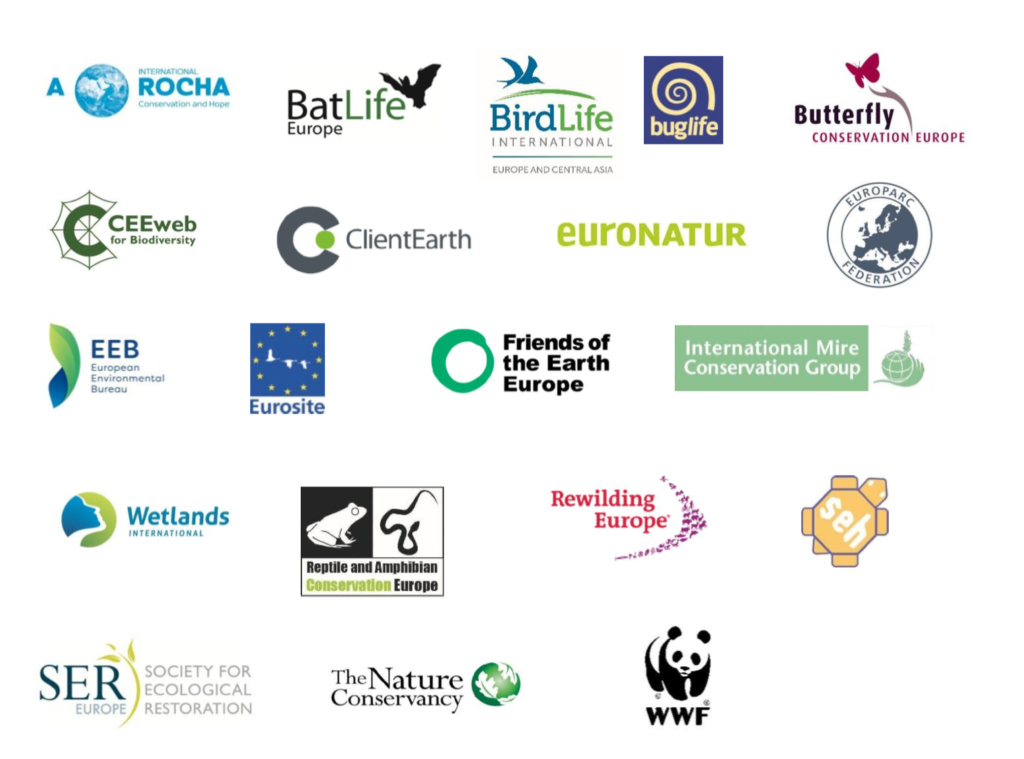How can the ongoing decline of European wild nature be reversed? A key paper published last week by the European Habitats Forum (including Rewilding Europe) outlines reasons why the EU’s current Biodiversity Strategy is failing and presents joint recommendations for the strategy post 2020.

Higher priority
It is evident that the EU will fail its 2020 target to halt biodiversity loss. Both the 2015 mid-term evaluation of the EU Biodiversity Strategy and the recently published 2019 IPBES Global Assessment confirmed the continuing decline of biodiversity and the degradation of ecosystems, both in the EU and globally.
A position paper published last week by the European Habitats Forum (EHF) – a coalition of leading European nature conservation organisations working to shape future EU biodiversity policy – outlines the main reasons for this failure. All well-established, these are as follows:
- Inadequate enforcement of existing nature, water and marine EU Legislation.
- Lack of sufficient ownership and mainstreaming with other sectors and Policies.
- Lack of sufficient resources and the continuation of damaging subsidies.
EHF members now call on the EU to make halting and reversing European biodiversity loss by 2030 a top priority. The issue should be placed high on the political agendas of heads of states, and not simply left to environment ministers to manage.
Stronger commitments
The UN Decade for Ecosystem Restoration will run from 2021 to 2030. Against this backdrop, one of the paper’s key recommendations is that a new approach to ecosystem restoration – with stronger commitments – is urgently needed.
A particular focus of this new approach should be the provision of space for natural processes to restore and sustain ecosystem functionality and resilience. Following rewilding principles, this would see processes such as free-flowing rivers and natural grazing lead to the restoration of wildlife populations and the development of nature-based economies.
EHF members also call for nature-based solutions to be promoted at scale to unlock the huge climate change mitigation and adaptation potential of restored forests, wetlands, peatlands and grasslands, and coastal, offshore and high seas ecosystems.
The restoration of connectivity and landscape defragmentation should also be a key priority.
“Europe suffers greatly from a lack of habitat connectivity,” says Frans Schepers, Managing Director of Rewilding Europe. “By limiting the ability of species to expand their range, this reduces the long-term viability of wildlife populations.”
A complete list of EHF recommendations can be found in the position paper.
Forum focus
The European Habitats Forum is a coalition of leading European nature conservation organisations. Facilitating coordinated communication with the European Commission (EC), members work to shape the implementation and future development of EU biodiversity policy, including its better integration with sectoral policies.
Supplying advice and knowledge to the Commission, the forum is represented in various EC bodies, groups and meetings, including the Commission’s Expert Groups, the Coordination Group on Biodiversity and Nature, and the Nature Directors meetings.

